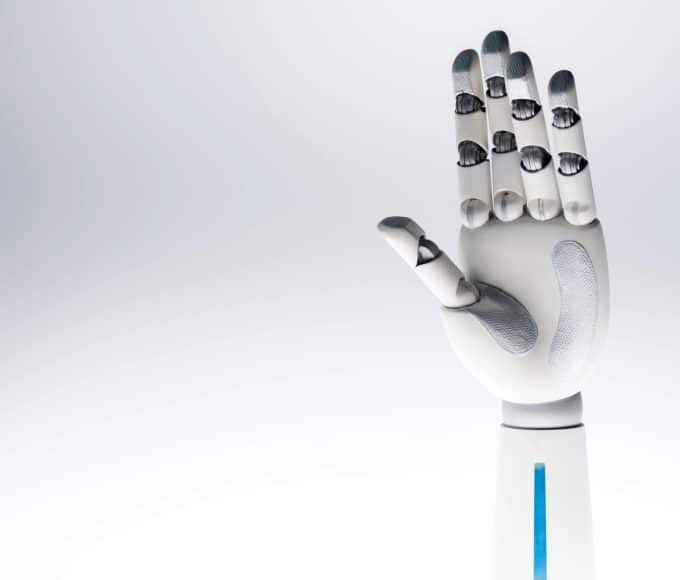No products in the cart.
Business TipsCareer
Adapt to AI or Get Outlined: How to Survive in the Post-ChatGPT World
June 2, 20252 Mins read96

Here’s the real talk. If you’re just starting your career in 2025, the only thing more important than what you studied is how to adapt to AI in your career. Because if you’re not learning how to work with it, you’re already behind.
AI isn’t just a trend—it’s an upgrade. Large language models like ChatGPT have gone from party tricks to boardroom essentials faster than anyone expected. In the last two years alone, they’ve outpaced entire industries—replacing everything from social media copywriters to entry-level data analysts.
The Problem: AI’s Progression Is Exponential
Forget “it’ll take decades.” We’re past that.
-
Stat check:
Studies show nearly 40% of global jobs are at risk of AI replacement within this decade. -
Example:
In 2023, only a few companies were testing ChatGPT. By 2025, it’s in HR, marketing, legal, and even customer service.
AI can read faster, write smarter, and synthesize data in seconds. If you’re stuck in manual, repetitive tasks, you’re in the direct path of the AI bulldozer.
Real Talk: Myths That’ll Get You Fired
Myth 1: “AI will never replace creativity.”
Reality: AI is already writing scripts, making art, and brainstorming content. Creativity isn’t safe—it’s shifting.
Myth 2: “Only coders need to learn AI.”
Reality: AI is touching every job—fashion buyers, sales reps, real estate agents, even therapists.
Myth 3: “I’ll just learn it later.”
Reality: AI doesn’t wait for you to catch up. The sooner you adapt, the easier it is to ride the wave—not get drowned by it.
What Works Now: How to Adapt to AI in Your Career
Here’s what to do to stay ahead:
1. Get Familiar with AI Tools in Your Field
-
Writers? Use ChatGPT for drafts, headlines, summaries.
-
Designers? Use Midjourney or DALL·E for quick mood boards.
-
Marketers? Leverage AI for ad copy, A/B testing, data analytics.
-
Even in healthcare or finance—AI is already assisting in diagnosis, data analysis, and forecasting.
2. Upskill Where AI Can’t Compete (Yet)
-
Emotional intelligence
-
Strategy and vision
-
Negotiation and leadership
-
Human connection—no prompt can fully replace that.
3. Collaborate, Don’t Compete
-
Let AI handle the repetitive tasks.
-
Use the time saved to double down on human-only skills.
-
Treat AI as your assistant, not your replacement.
What Will It Cost (Time + Tools)?
Time investment:
-
1–2 hours/week learning how to prompt AI, test it, integrate it into your job.
Money:
-
Many tools are free (ChatGPT, basic versions of Midjourney, Google’s Gemini).
-
Premium subscriptions (like ChatGPT Pro) cost around ₹1,500–₹2,000/month.
When to Ask for Help
If you’re feeling overwhelmed, remember: you don’t need to master AI overnight.
When to bring in a pro:
-
If your entire team is stuck and losing ground to AI competitors
-
If you’re in a regulated field (legal, finance) and AI mistakes can get you fired
-
If you’re hitting burnout trying to learn everything alone
Bonus: AI Hacks Nobody Talks About
-
Prompt Engineering:
Learning how to talk to AI can 10x your results. -
Repurposing:
Use AI to turn one blog post into social posts, threads, and newsletters. -
AI for Career Growth:
Use AI to draft pitch emails, optimize your LinkedIn profile, or even rehearse interview answers.
Final Word
Here’s the blunt truth: If you’re not learning how to adapt to AI in your career, you’re already writing your own exit letter.
AI isn’t replacing you because it’s smarter—it’s replacing you because it’s faster, more consistent, and tireless.
The good news? AI is a tool. You’re still the human with intuition, empathy, and the final say.
Learn it. Use it. Make it your sidekick, not your competitor.
Because in 2025, “just doing the work” isn’t enough. Working smarter—alongside AI—is the only way to future-proof your career.
Read more – Fast-Track Career: Rise Through the Ranks Quickly
Related Articles
Career
Top Tech Trends Freshers Should Keep an Eye On
As you begin your tech career, staying ahead of emerging trends is...
Career
Should You Consider Continuing Education? Exploring Your Options
As a recent graduate stepping into the vast ocean of the job...
Career
6 Essential Job Search Skills to Land Your Dream Job
Getting a job seemed so easy when we were kids, didn’t it?...
Career
Fast-Track Career: Rise Through the Ranks Quickly
Have you ever wondered which career will allow you to rise through...










